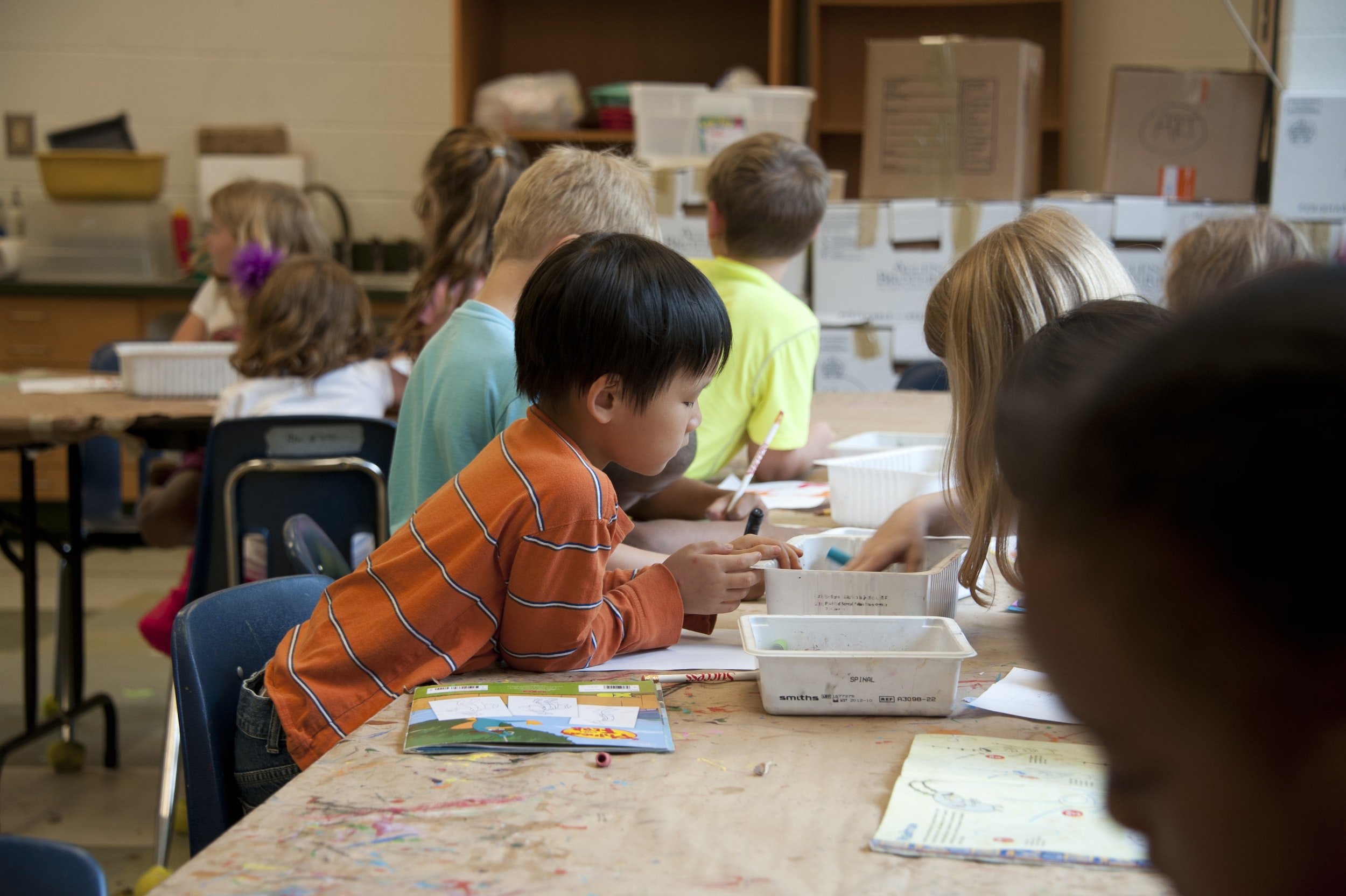Joséphine Vigouroux

Socializing and managing emotions are key skills that children learn to manage and acquire as early as kindergarten. These are the first moments of social life for children, and sometimes this learning can be a challenge for some children. In this article, we'll discuss some strategies to help children manage socialization problems at school.
Find out about the role of school in the socialization process, how to help your child understand his or her socialization and how to manage conflict effectively.
Nursery schools play a vital role in the socialization process. In addition to the family, it's a place where children can learn the first values of community life. Confronted with a group of children of the same age as well as older children, a child will develop his or her socialization skills at school and learn to identify needs and those of others, in order to express emotions and communicate effectively.
School therefore plays an important role in the socialization process, since the adults and other children around your child will help him/her to learn about his/her emotions, and will be the real pillars of his/her development as a human and social being. In fact, the World Health Organization considers socialization to be a "life skill".
At school, you have to deal with other people and their needs. Whether it's the needs of your classmates or those of your teachers, it's important to help your child understand his or her own needs and those of others, so that he or she can make the most of socialization.
Your child's relationship-building skills are learned through play, and by expressing his or her needs in a friendly, caring way. Teaching children to listen to themselves by observing them, and understanding the consequences of certain words or actions through discussion, can help your child become aware of his or her actions within a relationship and a group.
In order to understand your child's needs, the school and teaching teams are available to help your child get to know himself and identify his needs. To find out more aboutsocialization support, read our blog post on the subject.
Emotions are with us all our lives, and go through a lot when we're little! The more you can help your child express his emotions and put words to what's going on inside him, the better he'll be able to express himself as he grows up. School is a perfect place to learn to express yourself. Why not ask him to tell you about his school days, based on the emotions he felt? You could, for example, use special cuddly toys like the Pipouette plush toy. Don't forget that by listening attentively, your child will feel safe to express his emotions.
Last but not least, school is also a place to develop social skills and the ability to communicate with others. Surrounded by other children, your child will become increasingly adept at expressing his or her intentions to share in community games.
Many educational postures such as non-violent communication can be an interesting avenue to explore if you're interested in children's socialization.
School is also the place where children first come into conflict, and managing these conflicts is important for parents. Find out how promoting certain values and cooperative classes can help resolve conflict without violence.
Right from the start of the year, the teaching team and the school can implement a number of tools that will enable children to identify the values that the school promotes. Listening, kindness and positivity can all be part of this. Promoting shared values helps to manage conflicts at school, and parents' knowledge of and support for these values are important in providing the best possible support for their child.
On a day-to-day basis, the teacher has a professional posture that can be used to show what is expected in terms of living together, for example: Patience "I wait until someone has finished speaking before I start a sentence", etc.
There's no better way to prevent children from becoming isolated from each other than with cooperative projects. It could be a group project such as tending plants, sending postcards abroad or setting up a library corner together.
Cooperation is at the heart of Freinet's pedagogy, encouraging listening and sharing, as well as the development of children's socio-emotional skills.
The basics of non-violent communication are effective in conflict resolution. The more your child knows how to express his emotions, the more he'll have tools other than violence to make himself heard.
In conclusion, dealing with a socialization problem at school can be a challenge, but it's not insurmountable. By taking a proactive approach and working with your child and his school, you can help him overcome his socialization problems and thrive in the school environment. Remember to be patient and understanding, and celebrate every little victory along the way. Be attentive to his or her needs, especially if he or she has had to move during the school year or to expatriate abroad.